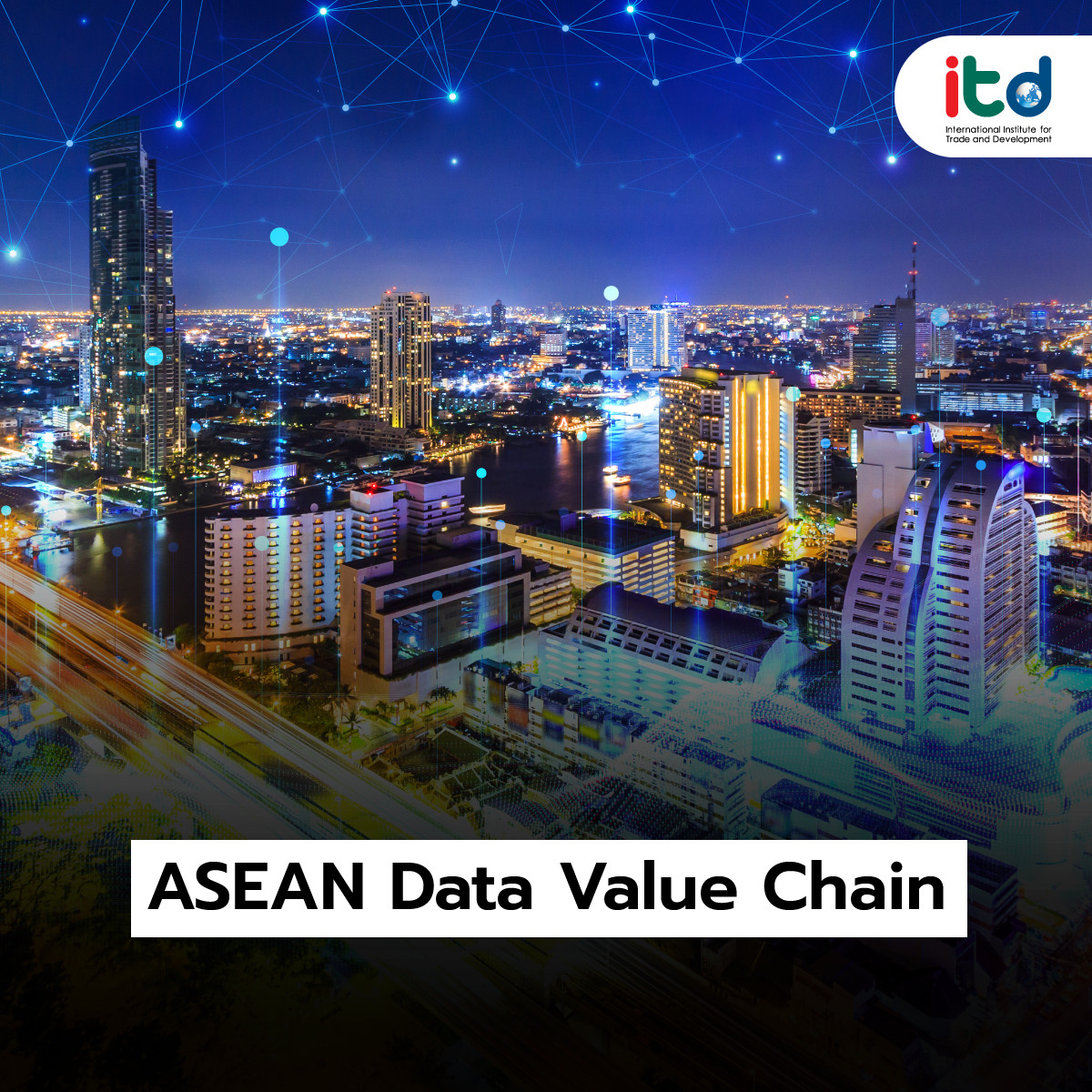About Documents
Data is essential in the digital age, especially when its role goes beyond market analysis. Data is now more crucial than ever, driving opportunities in various industries and businesses.
The concept of the data value chain has gained prominence after digital technology and data became more present in every sector, emphasizing the importance of extracting value from data at every step of its lifecycle, from raw data collection to its final use and possible reuse. The data value chain can be divided into four main processes:
Data Collection: This involves gathering and filtering data before transmission or storing data. The collection often involves tools and mechanisms to handle big data efficiently and flexibly i.e. data collection through user-facing platforms. In the ASEAN region, various popular platforms could access and collect a significant amount of user data, such as e-commerce platforms, travel booking services, and food delivery services.
Data Transmission: The process of data transmission or data transfer needs to rely on infrastructure to ensure rapid and reliable data transfer, including cross-border data transmission i.e. submarine cables or satellites. Among ASEAN member countries, investments have been made in technologies like submarine cables which are essential in cross-border data transmission and connectivity.
Data Storage: Data must be stored in a scalable manner to meet the demand for quick access, in which data centers play a significant role in this process. Baxtel mentioned that ASEAN has 239 data centers across the region, some of which are among the largest, like Google: Lok Yang 1 data center in Singapore.
Data Analysis, Processing, and Use: Data needs to be analyzed and processed to derive meaningful insights and practical utility. Synthesize data to use could involve utilizing artificial intelligence (AI) for data analysis.
The business and industry opportunities within the data value chain are immense. Large technology companies, particularly in the United States and China, continuously invest in this chain, gaining huge financial, market, and technological power, and could control numerous user data. Moreover, the COVID-19 pandemic has further accelerated the digital transformation, solidifying the influence of these companies.
ASEAN, as it embraces digitalization, must adapt to multiple areas and participate in the global data value chain. Competing on the global stage in this chain necessitates increased investments to enhance ASEAN’s role in the data life cycle of the data value chain.
Author:
Ms. Patcha Thamrong-ajariyakun
Senior Researcher
International Institute for Trade and Development (Public Organization)
www.itd.or.th
Publication: Bangkok BIZ Newspaper
Section: First Section/World Beat
Volume: 37 Issue:12521
Date: Wednesday, November 29, 2023
Page: 8 (bottom)
Column: “Asean Insight”





